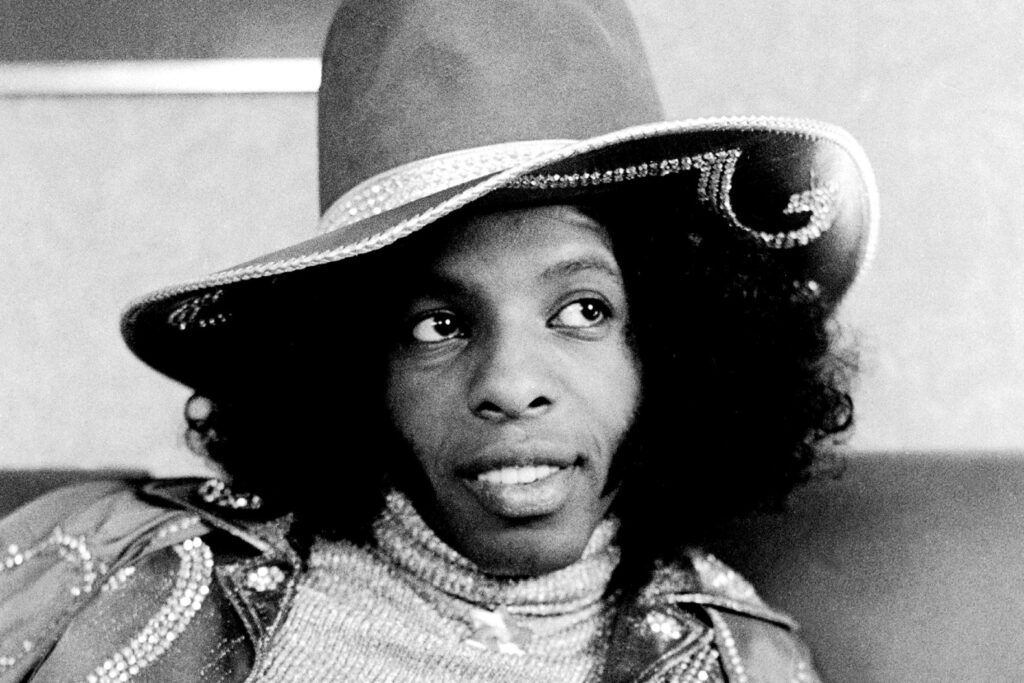
Few artists can claim to have shifted the entire landscape of American music. Sly Stone wasn't just a musician—he was a cultural earthquake. With the heartbreaking news of his passing at the age of 82, the music world stands still to honor a revolutionary spirit who fused funk, rock, soul, and psychedelic sounds into one electrifying groove.
Who Was Sly Stone?
Early Life and Musical Roots
Born Sylvester Stewart in Denton, Texas, in 1943, Sly grew up in a deeply religious household, steeped in gospel music. Raised in Vallejo, California, he was a child prodigy, learning to play multiple instruments before he even hit his teens.
From Radio DJ to Music Icon
Before founding his iconic band, Sly worked as a DJ at KSOL, where his eclectic taste in music set the stage for the fusion genre he would later pioneer. His radio days allowed him to understand what made people move—and he used that insight to light the world on fire.
The Birth of Sly and the Family Stone
A Revolutionary Band in a Turbulent Time
Formed in 1966, Sly and the Family Stone was groundbreaking. They were one of the first major American bands to have a racially integrated, mixed-gender lineup—a bold move during the Civil Rights era.
Breaking Genre and Racial Barriers
The band's very existence was political. Their music tore down genre walls and racial prejudices. Funk wasn't supposed to blend with rock. Men weren't supposed to share the mic with women equally. Sly said, “Why not?” and did it anyway.
The Signature Sound That Changed Everything
Funk Meets Rock and Soul
Sly's sound was like nothing before it. With bass lines that slapped, harmonies that soared, and grooves that locked you in, his music invited everyone to the party—and demanded that they dance.
Multi-Instrumental Genius
Sly didn't just front the band—he was the band. He played guitar, keyboards, bass, drums—you name it. His ability to blend sounds and styles came from his total mastery of musical instruments.
Albums That Redefined Music
“Stand!” and the Call to Consciousness
Released in 1969, Stand! was a call to arms wrapped in sunshine. With tracks like “Everyday People” and “Sing a Simple Song,” it was a feel-good funk fest with a conscience.
“There's a Riot Goin' On” – A Soundtrack of Disillusionment
By 1971, the optimism had faded. There's a Riot Goin' On was darker, heavier—reflecting Sly's inner turmoil and a nation's fractured dreams. It's messy, beautiful, and painfully real.
Cultural Impact of Sly Stone
Voice of a Generation
Sly wasn't just making hits; he was making statements. His lyrics tackled race, peace, unity, and personal freedom. He used the stage not just to perform but to provoke thought.
Champion of Diversity and Unity
Long before diversity became a buzzword, Sly and the Family Stone lived it. Black and white, male and female, they didn't just co-exist—they thrived. That vision of unity still resonates today.
Struggles Behind the Spotlight
Battles with Addiction
Behind the infectious smile and wild costumes was a man fighting inner demons. Sly's battles with substance abuse were no secret and led to years of erratic behavior and reclusiveness.
Industry Exploitation and Legal Woes
Like many Black artists of his time, Sly was often taken advantage of financially. Lawsuits over royalties and publishing rights plagued his later years.
Comebacks and Public Reappearances
Rock and Roll Hall of Fame Induction
In 1993, Sly and the Family Stone were inducted into the Rock and Roll Hall of Fame. Though his appearance was brief, it was a reminder of his monumental influence.
Surprise Grammy Appearance
At the 2006 Grammy Awards, Sly stunned audiences with a surprise performance. Though fleeting, it showed that his spark hadn't been extinguished—it had just gone underground.
Legacy and Influence
Inspired Artists Across Genres
From Prince to Public Enemy, Janet Jackson to Red Hot Chili Peppers—Sly's fingerprints are everywhere. His fearless genre-bending became the blueprint for generations of artists.
Samples, Covers, and Tributes
Hip-hop especially owes a debt to Sly. His songs have been sampled endlessly, and tributes have poured in for decades. From Tupac to Kendrick, his rhythms live on.
Tributes Pour In From Around the Globe
Upon the news of his passing, artists, fans, and music lovers worldwide shared stories, memories, and heartfelt tributes. Everyone—from Questlove to Lenny Kravitz—tipped their hat to the master.
Final Years and Reflections
Sly lived his final years largely out of the spotlight. Despite personal struggles, he remained a symbol of revolutionary creativity. In 2023, his memoir Thank You (Falettinme Be Mice Elf Agin) offered raw, personal insights into a life of brilliance and heartbreak.
Remembering the Revolutionary Sound
Turn on a Sly and the Family Stone track, and you'll feel it—that irresistible mix of rhythm, rebellion, and radiant joy. His music doesn't age—it vibrates with life.
Why Sly Stone Still Matters Today
In an era hungry for authenticity, Sly's message of unity, love, and unfiltered expression is more relevant than ever. He didn't just make music—he made meaning.
Conclusion – The Funk Will Never Die
Sly Stone may have left this world, but his sound, soul, and spirit live on. He broke rules, built bridges, and blasted joy through speakers for decades. The funk he ignited still burns bright, and the revolution he started continues every time someone picks up an instrument and decides to do it their own way.
Rest easy, Sly. You were, and always will be, everyday people's hero.













